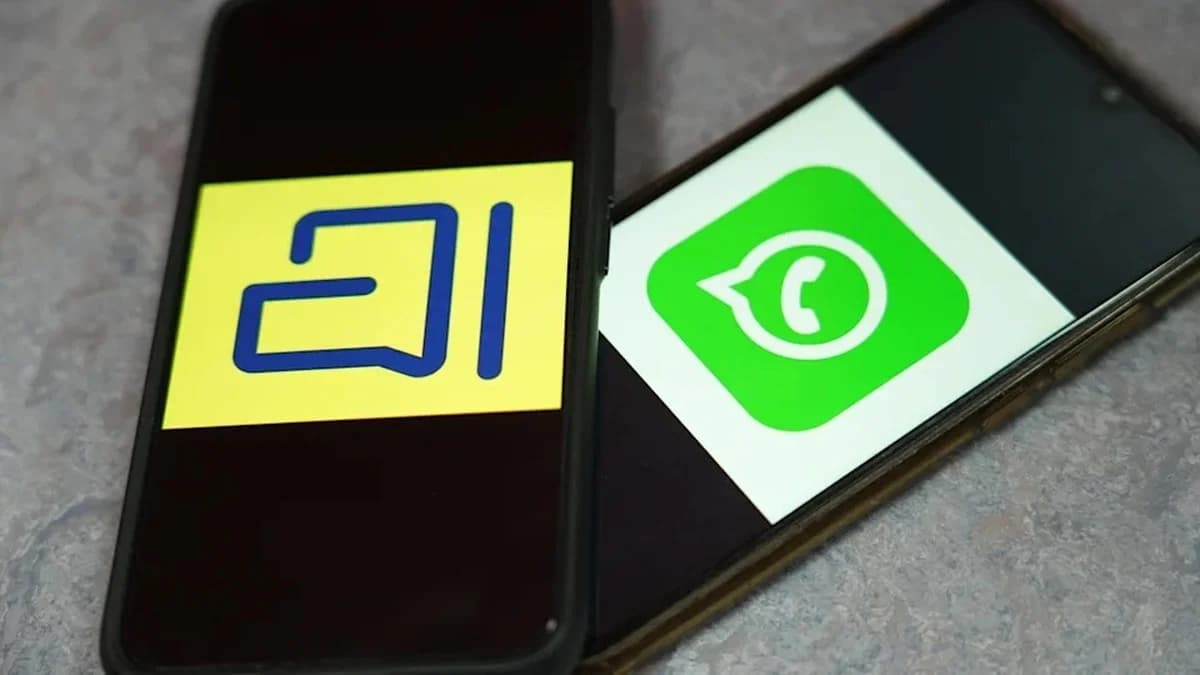We're loading the full news article for you. This includes the article content, images, author information, and related articles.
Arattai, a messaging application developed by India's Zoho, is gaining traction in Kenya, posing a potential challenge to WhatsApp's long-held market leadership amidst a global push for digital self-reliance.

Arattai, a messaging application developed by Indian tech company Zoho, has recently garnered significant attention in Kenya. The app, whose name means 'banter' in Tamil, recorded 7.5 million downloads across app stores as of Thursday, October 3, 2025. This surge in popularity is linked to India's broader 'Make in India' initiative and a push for digital self-reliance, aiming to reduce dependency on foreign technology and foster indigenous innovation.
While Arattai had a soft launch in 2021, its recent viral sensation marks a notable shift. Market intelligence firm Sensor Tower reported that Arattai's downloads were below 10,000 in August 2025 but surged to 400,000 in September 2025. Zoho founder Sridhar Vembu noted that the app added over 2 million new users in a single day during its peak growth.
WhatsApp, owned by Meta, currently holds a dominant position in Kenya's digital landscape. It is the most popular messaging app, with 97% of Kenyan internet users actively utilising the platform. This high adoption rate makes WhatsApp a crucial tool for both personal and business communication in the country.
The Communication Authority of Kenya (CA) reported in May 2024 that WhatsApp was among the top social media platforms used by Kenyans, highlighting its extensive adoption and influential presence. Its widespread use has made it an essential channel for customer support and engagement for many businesses in Kenya.
Arattai offers a range of features designed to compete with established messaging services. These include one-on-one and group chats, voice and video calls with end-to-end encryption for calls, media sharing, and 'Stories' similar to Instagram. The app also boasts unique features such as in-app video meetings, a personal cloud storage called 'Pocket' for saving messages and media, and a 'Mentions' tab for tracking conversations.
A key differentiator for Arattai is its commitment to user privacy. The company states that it does not display advertisements or use user data for advertising purposes, with all data stored in Indian data centres. Furthermore, Arattai is designed to work efficiently on low-end devices and slower internet connections, making it accessible in areas with unreliable network infrastructure.
The emergence of Arattai in the Kenyan market could introduce new competition and potentially influence user choices. While WhatsApp's market penetration in Kenya is exceptionally high, the appeal of a privacy-focused, ad-free alternative with unique features could attract a segment of users.
Analysts suggest that this development could influence public debate and policy execution, particularly concerning data privacy, digital sovereignty, and the promotion of local or regional tech solutions. Stakeholders are urging clarity on timelines, costs, and safeguards associated with such emerging platforms.
Despite its rapid growth, Arattai faces the significant challenge of converting initial downloads into sustained user engagement, especially in a market heavily dominated by WhatsApp. While calls are end-to-end encrypted, text messages on Arattai are not yet fully encrypted, a feature that Zoho has indicated will be added soon. This is a crucial aspect for privacy-conscious users who are accustomed to WhatsApp's comprehensive encryption.
The long-term impact of India's 'self-reliance' push on the global tech market, and specifically on app adoption in countries like Kenya, remains to be seen. The ability of Arattai to maintain its growth trajectory and effectively compete with established players will depend on continuous innovation, robust security features, and a strong understanding of user needs in diverse markets.
Observe how Arattai addresses the full implementation of end-to-end encryption for text messages and its strategies for user retention in a competitive market. Also, monitor any policy discussions in Kenya regarding data localisation and support for alternative messaging platforms.
Keep the conversation in one place—threads here stay linked to the story and in the forums.
Sign in to start a discussion
Start a conversation about this story and keep it linked here.
Other hot threads
E-sports and Gaming Community in Kenya
Active 9 months ago
The Role of Technology in Modern Agriculture (AgriTech)
Active 9 months ago
Popular Recreational Activities Across Counties
Active 9 months ago
Investing in Youth Sports Development Programs
Active 9 months ago